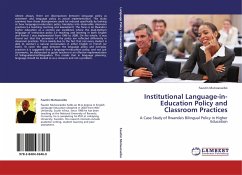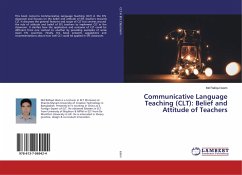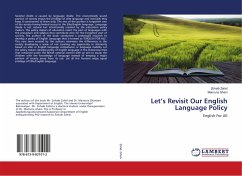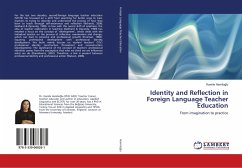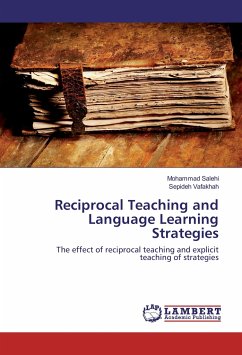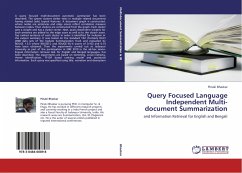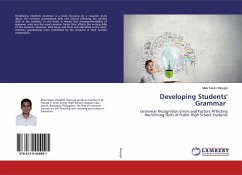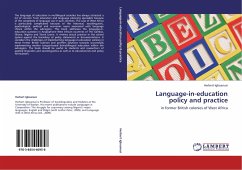
Language-in-education policy and practice
in former British colonies of West Africa
Versandkostenfrei!
Versandfertig in 6-10 Tagen
52,99 €
inkl. MwSt.

PAYBACK Punkte
26 °P sammeln!
The language of education in multilingual societies has always attracted a lot of concern from educators and language planning specialists because of the complexity of language use in such contexts. The case of West Africa is particularly complicated because of the historical, sociolinguistic, psychological, political and economic issues associated with language choice within the subregion. This book addresses the language-in-education question in Anglophone West African countries of The Gambia, Ghana, Nigeria and Sierra Leone. It reviews actual practice in the school system against the backdr...
The language of education in multilingual societies has always attracted a lot of concern from educators and language planning specialists because of the complexity of language use in such contexts. The case of West Africa is particularly complicated because of the historical, sociolinguistic, psychological, political and economic issues associated with language choice within the subregion. This book addresses the language-in-education question in Anglophone West African countries of The Gambia, Ghana, Nigeria and Sierra Leone. It reviews actual practice in the school system against the backdrop of policy statements or documentations. It considers the challenges of implementing language-in-education policies in these former British colonies and proffers solutions towards successfully implementing mother tongue-based bi/multilingual education within the subregion. The book should be useful to students and researchers of applied linguistics and sociolinguistics as well as to educationists and policy formulators.



